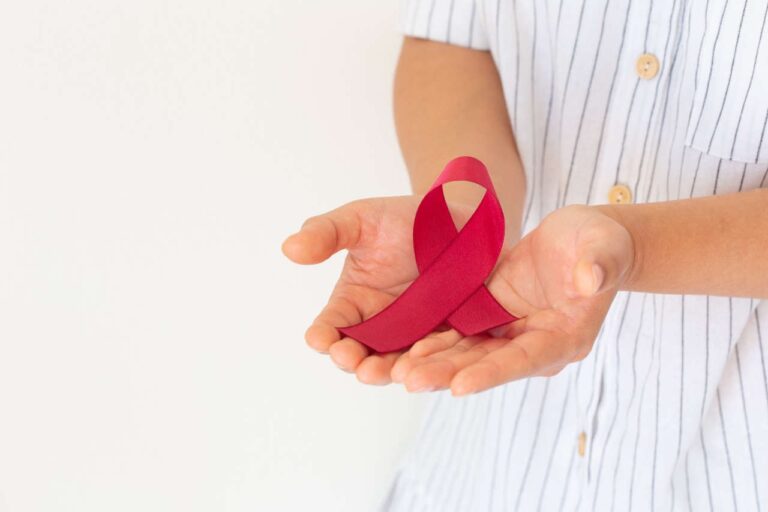
Metastatic pancreatic cancer is a devastating disease with a low survival rate. However, there’s a promising chemotherapy drug for this condition — Onivyde (irinotecan liposome injection). It is used in combination with other chemotherapy medications to manage the targeted cancer.
Speak to a Specialist
About Copay AssistanceAs research into Onivyde continues, clinical trials are underway to assess its efficacy in treating other types of cancers.
Onivyde targets the enzyme topoisomerase I, which is essential for DNA replication in cancer cells. Its liposomal encapsulation helps to target cancer cells and reduce the reactions associated with the therapy. However, patients should be aware of the potential side effects of Onivyde and work closely with their healthcare provider to manage any symptoms.
In this article, we will delve into the mechanism of action, clinical trials, dosing, and potential side effects of Onivyde, as well as provide a comprehensive overview of what you can expect during treatment with this drug.
What Is Onivyde?
Onivyde, the brand name for irinotecan liposome injection, is a chemotherapy drug that treats pancreatic cancer, particularly metastatic pancreatic ductal adenocarcinoma.
Onivyde was extensively evaluated in clinical trials. It showed remarkable efficacy and safety in treating metastatic pancreatic cancer. The NAPOLI-1 study, a key clinical trial that led to the approval of Onivyde by the US Food and Drug Administration, demonstrated that Onivyde, in combination with 5-fluorouracil and leucovorin, significantly improved overall and progression-free survival in patients who had previously received gemcitabine-based chemotherapy.
What Is Onivyde Used For?
Onivyde is a chemotherapy drug specifically used to treat metastatic pancreatic ductal adenocarcinoma of the pancreas.
The medication is administered in combination with other chemotherapy drugs, such as 5-fluorouracil (5-FU) and leucovorin. It is given as an intravenous infusion, meaning it is injected directly into a vein.
It’s important to note that Onivyde may not be suitable for all patients with metastatic pancreatic cancer, and treatment decisions should be made in consultation with a healthcare provider.
Like other chemotherapy drugs, Onivyde may cause side effects, and you should discuss the potential risks and benefits of the drug with your healthcare provider.
How Does Onivyde Work?
Onivyde works by inhibiting the enzyme, topoisomerase I, which is necessary for DNA replication in cancer cells. By blocking this enzyme, Onivyde slows or stops the growth of cancer cells.
Onivyde contains irinotecan, which is an active substance in chemotherapy. However, Onivyde is unique from other forms of irinotecan because it is encapsulated in a liposome, a fat molecule. This helps the drug dissolve slowly and last longer in the body.
When Onivyde is administered through an intravenous infusion, the liposomes containing irinotecan are taken up by cancer cells. Once inside the cancer cells, the liposomes release the irinotecan, which then inhibits topoisomerase I.
This, in turn, causes damage to the cancer cell’s DNA and prevents the cell from dividing and growing further. Onivyde may also affect healthy cells in the body, resulting in the reduction of blood cells.
Consult a Chemotherapy Specialist
Get Chemotherapy Treatment AssistanceSide Effects

Patients may experience some side effects while undergoing Onivyde therapy. These include:
Common Side Effects:
- Fatigue
- Diarrhea
- Nausea and vomiting
- Loss of appetite
- Mouth sores
- Fever
- Neutropenia (low white blood cell count)
Less Common But More Serious Side Effects:
- Severe allergic reactions, including anaphylaxis
- Severe diarrhea, which can lead to dehydration and electrolyte imbalances
- Severe neutropenia, which can increase the risk of infection
- Interstitial lung disease, a rare but serious condition that can cause shortness of breath and other respiratory symptoms
It’s important to remember that Onivyde may cause other reactions not listed here, so you should discuss all your concerns with your healthcare provider.
Additionally, Onivyde may interact with other medications or health conditions, so patients should disclose their full medical history and all medications to their healthcare provider before starting treatment.
Dosing Information
The dosing of Onivyde is determined by several factors, such as the patient’s body weight, age, medical history, and other medications they may be taking.
Onivyde is administered as an intravenous infusion, which means that it is given directly into a vein through a needle or catheter. It should only be administered by a medical personnel that is highly experienced in infusing cancer drugs. It’s advisable that you receive this therapy in an infusion center or hospital to avoid any complications. The people at the facility should also be knowledgeable about the risks and possible drug interactions.
For the treatment of metastatic pancreatic cancer in combination with 5-fluorouracil (5-FU) and leucovorin, the recommended dose of Onivyde is 70 mg/m². This dose is given as an intravenous infusion over a period of 90 minutes once every 2 weeks until cancer progression or unacceptable side effects
Your healthcare provider may adjust the dose based on your response to treatment. It is critical to report any side effects or unusual reactions to your healthcare provider as some side effects may require immediate medical attention.
Precautions
- Before starting treatment with Onivyde, patients should discuss their medical history and any medications they are taking with their healthcare provider.
- Patients should inform their healthcare provider if they are pregnant or planning to become pregnant, as Onivyde may harm a developing fetus. Although there are no confirmed cases, it’s not advisable to take Onivyde while pregnant. Use contraceptives during therapy and for one month after your final dose.
- You should not take Onivyde if you have interstitial lung disease.
- It’s not advisable to continue the medication if you experience hypersensitivity to irinotecan HCI or Onivyde. The medication can cause severe hypersensitivity reactions.
- Patients should also be aware that Onivyde may cause fatigue, and they should avoid activities that require alertness until they know how the drug affects them.
- It is important to follow all instructions provided by your healthcare provider. Do not stop your treatment without first consulting your healthcare provider.
Get Chemotherapy Copay Assistance
Chemotherapy Financial AssistanceCost
The cost of Onivyde is determined by various factors such as dosage, frequency of administration, patient location, and insurance coverage. Patients may be able to obtain Onivyde at a lower cost if they have insurance coverage or are eligible for financial assistance programs.
Keep in mind that this medication is not readily accessible over-the-counter. A prescription from your doctor is required. You can also discuss the cost of Onivyde with your healthcare provider and insurance company to explore options for financial assistance if necessary.













